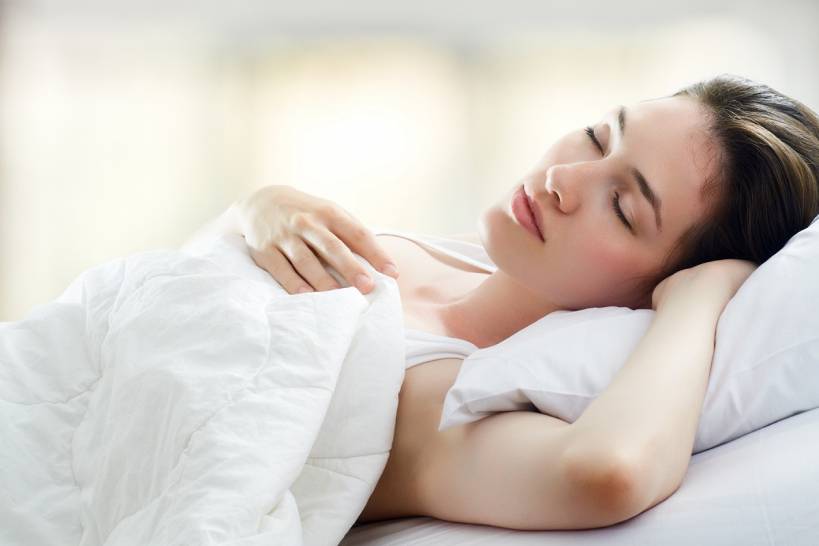Contrary to popular belief, beauty sleep is anything but a myth and sleep does decrease the presence of wrinkles on your neck and face, even if it’s temporary. This is partially because your body’s temperature decreases and there is a change in body position. Your body’s temperature cools down right before you go to sleep (only around half a degree) and to achieve this, the blood flow to your skin is increased by the circulatory system. This is the reason you may notice your cheeks flush at night time.
What does it mean to be “radiant”?
This usually suggests that your skin color gets closer to the color of your blood. Just like a house or car radiator that distributes heat by moving hot liquid around, your circulatory system does the same by moving warm blood around in your body, resulting in the changing of your skin tone to alter body temperature. Some people may appear to look more radiant right before bed or while they’re sleeping, because of this. In the early stages of the sleep cycle, most people tend to have an increase in growth hormone.
These deep stages of sleep, stages 3 and 4, are what contribute to “beauty sleep” as the increase in growth hormone aids in repairing and rebuilding vital tissues like bone and muscle. The body’s cells show an increase in production and breakdown reduction of proteins while in deep sleep. Since proteins are necessary for cell growth and repair damaging factors like stress and UV rays, deep sleep could very well be named “beauty sleep.”
An increased release of the growth hormone is thought to be associated with your body’s inclination to fast during the sleep state. Studies show that skin cells regenerate more quickly at night time than during the day. Cell division occurs all day long, but hits its peak around two am. Cell division will peak even if you don’t go to sleep at night, though the growth hormone surge will not.
So what occurs if you don’t get your beauty sleep?
Lack of sleep is not the only negative impact on body fat percentage and your chances of developing a chronic illness—getting a poor night’s sleep affects this just as equally. Getting deep sleep helps to combat the effects of cortisol. Ageing brings on the natural decrease of growth hormone and increase in abdominal fat, causing a vicious cycle of exhaustion, increased abdominal fat and stress hormone. Brain activity that controls your decision-making processes, emotions, and social communications is severely decreased during deep sleep, and may help people preserve ideal emotional and social processes when they’re awake.
Another benefit of beauty sleep is to apply cosmetics that are more vulnerable to sunlight right before bedtime, as essential antioxidants like vitamins C and E stay more active on your skin during the night.
Some people advise sleeping on your back, rather than on your stomach or side, believing that prolonged years of sleeping with your face in the same position on a pillow creates wrinkles. You can avoid this by sleeping on your back. Sleep temporarily lessons the prominence of wrinkles in your face and neck. This is partially due to shifting body position – lying down lessons gravity’s force. But beauty sleep is more than just that, or else lying down during the daytime would produce the same results. While you’re asleep, your entire body increases perspiration. This increased moisture smooth’s wrinkles on your skin. There are some cosmetics available that aid with wrinkles by moisturizing your skin, but sleep is the ultimate natural moisturizer.


